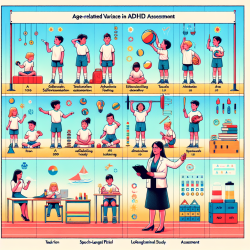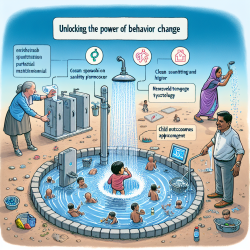Introduction
The enduring legacy of colonialism in global health education is a topic of increasing importance. As educators and practitioners in the field, it is imperative to critically examine and dismantle the structures that perpetuate these colonial legacies. The research article "Educational approaches to teach students to address colonialism in global health: a scoping review" provides a comprehensive overview of current educational approaches and highlights the need for explicit incorporation of anticolonial curricula informed by anti-oppressive pedagogy.
Understanding Anticolonial Education
Anticolonial education in global health is defined as training practices focused on dismantling colonial legacies and neocolonialist control. This involves addressing structural issues such as cultural hegemony, structural violence, and systems of power and privilege in global health. The research emphasizes the importance of meaningful collaboration with Indigenous and low-income and middle-income country (LMIC) partners to create a curriculum that is truly reflective of diverse perspectives and needs.
Key Findings from the Research
The scoping review analyzed 28 articles that centered on North American students and their educational experiences. It highlighted several gaps in current educational practices:
- Lack of emphasis on pedagogical approaches and education theory in existing curricula.
- Limited focus on alternative ways of knowing and prioritization of partners’ experiences.
- Need for systemic change to address inequities in global health education.
These findings suggest a pressing need for curricula that incorporate anticolonial principles, informed by anti-oppressive pedagogy and collaborative efforts with Indigenous and LMIC partners.
Practical Steps for Practitioners
Practitioners looking to improve their skills and contribute to the decolonization of global health education can consider the following steps:
- Curriculum Development: Integrate competencies that focus on understanding the history of colonialism and systems of power in global health. Develop curricula that promote equitable partnerships and bidirectional learning.
- Pedagogical Approaches: Employ transformative learning approaches that encourage critical reflection and self-awareness. Utilize participatory competencies to foster a deeper understanding of social contexts.
- Collaboration and Partnerships: Engage in meaningful collaboration with Indigenous and LMIC partners to co-create curricula that reflect diverse perspectives and address local needs.
Encouraging Further Research
While the scoping review provides valuable insights, there is a need for continued exploration and publication within academic global health. Practitioners are encouraged to engage in further research to build a robust anticolonial curriculum that can effectively address structural inequities in global health education.
Conclusion
Integrating anticolonial education in global health is crucial for dismantling colonial legacies and promoting equity in education. By adopting the recommendations from the research, practitioners can play a pivotal role in transforming global health education to be more inclusive and equitable.
To read the original research paper, please follow this link: Educational approaches to teach students to address colonialism in global health: a scoping review.










